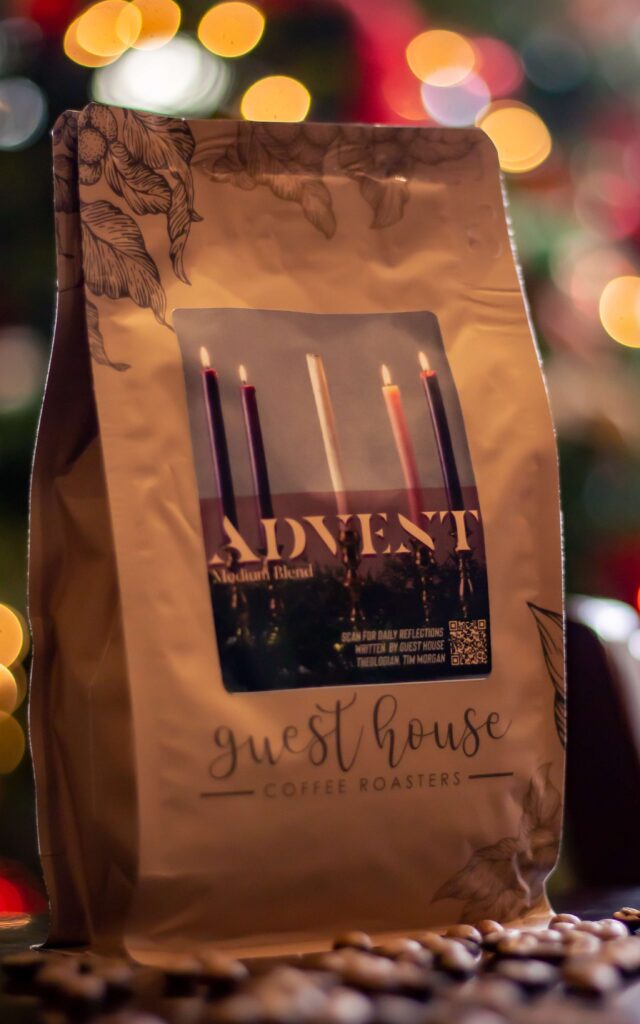“O Lord, I love the habitation of your house and the place where your glory dwells. Do not sweep my soul away with sinners, nor my life with bloodthirsty men, in whose hands are evil devices, and whose right hands are full of bribes” (Psalm 26:8-10).
“Now may the God of peace himself sanctify you completely, and may your whole spirit and soul and body be kept blameless at the coming of our Lord Jesus Christ” (1 Thessalonians 5:23).
The birth of Jesus is a great flood on the earth, rolling waves over the wicked and securing the righteous in a vessel of God’s design (Genesis 6:13-22; 1 Peter 3:18-22). It is the destruction of a city, flames billowing smoke “like the smoke of a furnace” (Genesis 19:28) across daybreak’s horizon, a disaster which by the Lord’s mercy his servants escape (Genesis 19:16; compare John 12:48).
The Gospel of Luke presents Jesus’ first trip to the temple with details that ought to arrest our attention. Mary and Joseph had brought Jesus to Jerusalem to fulfill the requirement of the Law that “every male that first opens the womb shall be called holy to the Lord” (Luke 2:23; Exodus 13:1, 12-15). In other words, he must be consecrated to the Lord’s service in a formal and authentic way (or a payment could be made for his “redemption,” which is traditionally called the pidyon haben, which is a Hebrew phrase meaning “redemption of the firstborn”). At the event of Jesus’ consecration, a man named Simeon, who was “righteous and devout, waiting for the consolation of Israel” (Luke 2:25) and had entered the temple “in the Spirit” (Luke 2:27), took Jesus in his arms and proclaimed him as God’s salvation (Luke 2:28-31). Then he addressed Mary and said, “Behold, this child is appointed for the fall and rising of many in Israel, and for a sign that is opposed (and a sword will pierce through your own soul also), so that thoughts from many hearts may be revealed” (Luke 2:34-35). In this same scene, we find a prophetess named Anna, who “did not depart from the temple, worshiping with fasting and prayer night and day” (2:37). She had heard Simeon’s exclamation. Like Simeon, she too praised God and proclaimed him “to all who were waiting for the redemption of Jerusalem” (Luke 2:38). With single-minded devotion, with full, uncompromising attention on the Spirit’s work in the Father’s house, Simeon and Anna prepared themselves for the redemption of God’s people.
The prophet Isaiah describes a contrary scene: due to Israel’s disregard of God’s deeds, their ignorance of the Lord, the mouth of the grave will yawn wide and “the nobility of Jerusalem and her multitude” (Isaiah 5:14) will march into its abyss. A judgment stretches out across the great span of God’s people: “Man is humbled, and each one is brought low, and the eyes of the haughty are brought low” (Isaiah 5:15). The Lord, on the other hand, “is exalted in justice, and the Holy God shows himself holy in righteousness” (Isaiah 5:16). In the coming of the Lord, the multitude is dislocated and disenfranchised. This act of judgment is God’s exaltation, the demonstration of his righteousness, the force and purity of his rule. In Jesus’ coming, God’s kingdom draws near (Luke 21:31). God’s righteous rule, his claim upon the world, is declared.
That declaration draws a line through each of our hearts, through our families, our cities, and our nations. A sword pierces through the world’s soul. The psalmist writes, “I do not consort with men of falsehood, nor do I consort with hypocrites. I hate the assembly of evildoers, and I will not sit with the wicked” (Psalm 26:5). In Jesus’ coming, he commands the attention of his people, he speaks the word by which they live, he designs the form which their life together must take. And he makes the claim—the final claim—upon your whole person, “spirit and soul and body” (1 Thessalonians 5:23). Jesus’ coming calls you out from the world of the wicked into the place which is his and where he dwells. It calls you into his world, where he is doing something. Like Anna, who waited for the Lord’s redemption with bated breath, “you must stay awake at all times, praying that you may have strength to escape all these things that are going to take place, and to stand before the Son of Man” (Luke 21:36). We must pray to become worthy of the psalmist’s words, “But as for me, I shall walk in my integrity; redeem me, and be gracious to me. My foot stands on level ground; in the great assembly I will bless the Lord” (Psalm 26:11-12).
Jesus’ coming is the psalmist’s integrity. It is our integrity. He writes, “Prove me, O Lord, and try me; test my heart and my mind. For your steadfast love is before my eyes, and I walk in your faithfulness” (Psalm 26:2-3). The Lord’s nearing countenance, his approach in unfaltering love, in the unprompted initiative of his salvation, is what unifies our very hearts and our Church. It is ultimately what unifies the heart of all creation. Today, I’d ask you to meditate on the line drawn by God in the birth of Jesus. This line, which cuts across every inch and mile of the world, is ultimately an effect of God’s claim, an effect of his coming rule. It is finally this: if the world (and with it, our whole self) is God’s, then it’s not ours.
Further Reading: Psalm 26; Isaiah 5:13-17; 1 Thessalonians 5:12-28; Luke 21:29-38
Written by Guest House Theologian, Tim Morgan. These reflections are a complimentary addition to our Advent Blend Coffee Bags. Scan the QR code each day to read the most recent reflection.

More Advent reflections can be found here.